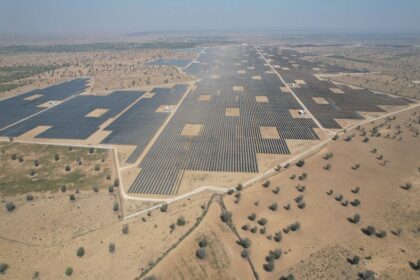Microsoft shareholders have voted against a resolution calling on the company to address risks linked to deploying advanced technologies, including artificial intelligence (AI), in the fossil fuel industry. The resolution was brought forward by environmental nonprofit As You Sow, representing shareholders Will and Holly Alpine.
The Resolution’s Core Concerns
The proposal highlighted concerns about the potential long-term risks to Microsoft’s operations, financial stability, and reputation. These risks stem from the use of its AI products in high-carbon-emitting projects. According to Will Alpine, a representative of the proposal, Microsoft’s existing guidelines on responsible AI and energy principles fail to adequately address environmental harms and do not assess the integrity of fossil fuel companies.
“Microsoft often points to its Responsible AI and Energy Principles in response to scrutiny. However, its Responsible AI principles do not address environmental harms, and its Energy Principles fail to evaluate the integrity of fossil fuel companies,” Alpine stated.
Allegations of Hypocrisy
In its October filing, As You Sow accused Microsoft of hypocrisy, pointing out discrepancies between its public climate commitments and its business practices. While the company positions itself as a leader in combating climate change, the nonprofit argued that it also promotes fossil fuels as a growth opportunity for AI applications.
The filing alleged selective reporting by Microsoft, claiming the company emphasizes the climate-positive applications of advanced technologies while omitting the environmental risks tied to AI’s role in fossil fuel extraction.
Microsoft Board’s Response
Before the shareholder meeting, Microsoft’s board of directors recommended voting against the resolution. The board argued that the proposed report would narrowly focus on a specific customer segment, diverging from global climate reporting standards.
Additionally, the company stated that the concerns raised in the proposal were already addressed through existing disclosures about Microsoft’s approach to working with energy sector clients. The board emphasized that further reporting on this matter was unnecessary.
Broader Shareholder Decisions
During the virtual meeting, shareholders also voted down five other proposals. These included:
- Two AI-related proposals: Examining risks tied to the use of AI.
- Three additional proposals: Addressing Bitcoin’s potential benefits, the impact of technology on human rights, and Microsoft’s involvement in military applications.
Detailed voting results are expected to be released within four days, offering a clearer picture of the shareholder stance on these issues.
Growing Scrutiny of Tech Giants’ Environmental Claims
Microsoft’s rejection of the resolution mirrors a broader trend of scrutiny toward major technology companies over their environmental claims. Critics argue that such companies often employ greenwashing tactics, overstating their climate achievements while downplaying their environmental shortcomings.
For instance, Google recently admitted that its operations led to a 13% rise in greenhouse gas emissions last year, contradicting its earlier claims of carbon neutrality. Similarly, Amazon has faced backlash for using renewable energy credits to offset its nonrenewable energy consumption. According to Amazon’s Employees for Climate Justice, 78% of the company’s energy in the US still comes from nonrenewable sources.
What’s Next for Microsoft?
While Microsoft has emphasized its climate initiatives, such as achieving carbon negativity by 2030, the rejection of this resolution raises questions about the alignment of its business practices with its sustainability commitments. As environmental groups and investors continue to push for greater transparency, the tech giant may face additional pressure to reassess its approach to partnerships in high-emission industries.
FAQs
Why did Microsoft’s shareholders reject the resolution?
The Microsoft board argued that the proposed report was unnecessary, citing existing disclosures and global climate reporting standards. Shareholders largely agreed with this stance, leading to the resolution’s rejection.
What are As You Sow’s main criticisms of Microsoft?
As You Sow accused Microsoft of greenwashing, highlighting inconsistencies between its climate commitments and its business practices, particularly its promotion of fossil fuels as a growth area for AI.
How is AI used in the fossil fuel industry?
AI technologies are employed to optimize oil and gas exploration, improve drilling efficiency, and enhance production processes, contributing to increased fossil fuel extraction.
What other resolutions did Microsoft shareholders reject?
In addition to the fossil fuel resolution, shareholders turned down proposals related to AI risks, Bitcoin benefits, human rights impacts, and military applications of technology.
What is greenwashing?
Greenwashing refers to the practice of misleading consumers or stakeholders by overstating a company’s environmental efforts while downplaying its negative environmental impact.



















